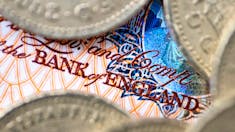How to Ace UBS Assessment Tests in 2025
All products and services featured are independently selected by WikiJob. When you register or purchase through links on this page, we may earn a commission.
- What Are UBS Assessment Tests?
empty
empty
- Examples of UBS Junior Talent Cognitive Assessments
empty
empty
empty
empty
- Preparing for the UBS Culture Match Assessment
- Preparing for the UBS Numerical Reasoning Test
empty
empty
empty
empty
empty
- What to Remember During the UBS Online Assessment
- Frequently Asked Questions
- Final Thoughts
UBS is a multi-national global financial services and investment bank. The firm recruits individuals at all levels, including apprenticeships, graduates, and experienced professionals.
As a prominent organisation in its sector, competition for places on all schemes is competitive.
The bank runs a comprehensive recruitment and selection process to recruit the best talent to fill vacancies. This process involves multiple stages, including the UBS culture match assessments and interviews.
This article explores the UBS assessment tests in more detail. We look at details on what to expect in the assessments and how to best prepare for the UBS assessments test.
Prepare for the UBS Assessment with JobTestPrep
What Are UBS Assessment Tests?
UBS junior talent cognitive assessments are online assessments used to evaluate an individual's cognitive abilities and suitability for a role at UBS.
The test is used in the early stages of the recruitment process to narrow down the large applicant pools for roles to only candidates who demonstrate the essential attributes and abilities needed to succeed at a position at UBS.
The UBS Junior Talent Cognitive Assessments, also known as the Junior Talent Online Assessment v2, consists of two assessments:
- UBS Cultural Appraiser (Situational Judgement Test)
- Numerical Reasoning Test (Elements Numerical)
UBS Cultural Appraiser
The UBS culture match assessment is a form of situational judgment test. This assessment uses questions presented as real-life situations that candidates may encounter in a workplace.
Candidates are given a list of multiple-choice question statements and they must select the response that represents how they would react or behave in the given situation and select the most appropriate response.
There are 15 questions in the test. The test isn't timed; candidates generally take up to 20 minutes to complete all questions.
The main aim of the UBS cultural appraiser is to evaluate an individual's ability to problem solve and make rational decisions and judgments in workplace situations.
In addition, the test assesses a range of skills that UBS believes essential to all successful employees, including their interpersonal skills and problem-solving abilities.
The UBS culture match assessment also evaluates whether an individual's values, attitudes, and traits align with UBS's cultural values and expectations.
UBS Numerical Reasoning Test
The UBS numerical reasoning test evaluates a candidate's quantitative aptitude and ability to work with numerical data.
It evaluates skills such as data interpretation, mathematical reasoning, and attention to detail, key skills needed for roles within the banking and financial services industry.
Moreover, the test comprises 18 questions given as numerical data sets, charts, or graphs.
Candidates must use their numerical reasoning ability and understanding of basic mathematical concepts to analyse the information and then select which of the answers provided is correct.
The test is a timed assessment; candidates must complete as many questions as possible in the 18-minute allotted time.
Examples of UBS Junior Talent Cognitive Assessments
Preparing for UBS junior talent cognitive assessments is essential to become familiar with the types of questions you will be asked in the test.
To help with your preparation, included below are some example questions on the UBS culture match assessment and the UBS cognitive assessment – numerical reasoning test.
UBS Culture Match Assessment Example Question 1
You are working on a high-profile project at UBS. There are five other people on the team. When speaking to one of your colleagues, you discover they have a family situation happening at home, which is impacting their work and ability to meet the tight time deadline for the project.
Your colleague hasn’t made the project leader aware of the situation as they felt that they could manage their home situation and project.
What would you do?
a) Offer assistance and support to your struggling colleague. You could approach them privately and ask if there's anything you can do to help. This demonstrates your commitment to teamwork and collaboration.
b) Discuss the issue with your team leader, telling them the situation, details, and why your colleague didn’t want to raise this with them.
c) If possible, suggest potential solutions to help your colleague meet the project deadline. This could involve redistributing workload or seeking temporary.
d) You feel it is better to let your colleague deal with the situation. They believe they can meet the deadline, so you feel it is better not to react and take action.
e) Take on the work yourself: Based on what your colleague has said, you feel it is better to take on the work yourself. You set up a meeting with your team leader to tell them what is happening and that you are taking on your colleague's remaining project responsibilities.
You are part of a team that has been tasked with delivering a client presentation.
The presentation includes input from three different departments, including your own. The presentation has been challenging to compile due to the technical nature of the content and the client's requirements.
On the day the presentation is due to be delivered, one of your colleagues is unable to attend due to a family emergency. This means that the technical section from this colleague must be delivered by both yourself and the remaining team member. Both of you are not expert in the content included.
You are also approached by your team leader asking you to draft a short summary report to be delivered to the executive committee later that afternoon.
You realise that you may struggle to meet both commitments.
What do you do?
a) Agree that you will draft the summary report while informing your manager of the situation with the client presentation. Raise with your manager that you may need to get additional resources to draft the summary report.
b) Take on the summary report. If you do not meet the deadline, then you have made a start on it, and your team leader will understand that preparing for the additional technical content you have to cover in the client presentation is more important.
c) Tell your team leader of the situation, stating that you can not take on the work. Ensure they are aware that delivering the presentation to the client takes priority.
d) Accept the task but ask one of your colleagues to draft the summary report. You will review the report but do not feel it is necessary to inform your team leader.

If you need to prepare for a number of different employment tests and want to outsmart the competition, choose a Premium Membership from JobTestPrep.
You will get access to three PrepPacks of your choice, from a database that covers all the major test providers and employers and tailored profession packs.
Confectionary Sales at Different Shops
| Item | Shop A | Shop B | Shop C | Shop D | Shop E |
|---|---|---|---|---|---|
| Strawberry cake | 34 | 45 | 2 | 52 | 235 |
| Chocolate cake | 32 | 236 | 5 | 84 | 412 |
| Carrot cake | 104 | 214 | 74 | 78 | 524 |
| Doughnut | 123 | 40 | 8 | 45 | 124 |
| Cinnamon bun | 78 | 112 | 28 | 25 | 108 |
If the number of doughnuts at Shop E decreases by 50%, what is the new ratio of doughnuts to cinnamon buns at Shop E?
a) 1:1
b) 2:1
c) 3:2
d) 1:7
e) 2:3
When working on client data you are provided with the following information
Stock A: Was purchased 100 shares at a price of $50 per share
Stock B: Was purchased 200 shares at a price of $75 per share
The client decided to sell all shares in both stocks. The current market prices are as follows:
Stock A: $60 per share
Stock B: $80 per share
What would be the total profit or loss the client would make if they sold all your shares in both stocks at the current market prices?
a) $2,500
b) $2,000
c) $1,500
d) $1,750
Preparing for the UBS Culture Match Assessment
UBS Culture Match Assessment assesses how well an individual aligns with UBS values and their ability to make rational decisions in workplace situations.
You can do several things to prepare for the assessment to ensure you present an accurate picture of yourself.
These include:
Step 1. Be Aware of the Seven Core UBS Values
Familiarize yourself with how UBS defines and emphasizes these values in their workplace culture.
Step 2. Understand the Role You Have Applied For
Review the job description and understand the expectations and skills needed for the role. This helps you align your responses during the assessment with what is expected in the role.
Step 3. Take Practice Situational Judgment Tests Online
Practising will help you get comfortable with the format and the types of decisions UBS values in its employees.
Preparing for the UBS Numerical Reasoning Test
Preparation is vital to performing well in numerical reasoning assessments. Regular practice and a solid understanding of math fundamentals will help you feel more confident and better equipped to succeed in the UBS Numerical Reasoning Assessment.
Here are some tips to help you prepare for the UBS numerical reasoning test:
Practice Numerical Reasoning Tests
Practice tests help you become familiar with the types of questions you'll encounter and improve your time management.
Review Basic Math Concepts
Familiarise yourself with basic math concepts, such as percentages, fractions, decimals, ratios, addition, subtraction, multiplication, and division.
These concepts are needed to analyse numerical data presented in the test questions.
Understand Data Interpretation
Numerical reasoning tests often involve interpreting data from tables, graphs, and charts. Practice identifying relevant information from visual data. This skill is vital for answering questions accurately.
Simulate Test Conditions
The numerical assessments are timed. When practising, ensure you do so under timed conditions.
This ensures you become familiar with the time pressure you will feel when taking the test and develop your time management skills.
Practice Online Logic Games
Logic games and puzzles, in general, can enhance your problem-solving skills and logical reasoning.
Look for online logic games and math puzzles to improve numerical reasoning.
What to Remember During the UBS Online Assessment
The UBS online assessment is an opportunity to showcase your skills and qualifications. Approach it positively to demonstrate your abilities and alignment with UBS's values and culture.
Here are some additional tips to remember when taking the UBS culture match assessment and UBS numerical reasoning assessment.
-
Review Instructions Carefully – Take the time to read and understand the instructions for each assessment component. Following instructions accurately is crucial.
-
Manage Your Time – Most online assessments have time limits for each section. Keep an eye on the clock and pace yourself accordingly. If you are struggling, don't dwell on a question. It's best to mark your best guess and move on to the next question. The more questions you answer correctly, the higher your score.
-
Test Your Computer – Ensure your computer, internet connection, and any required software are downloaded in advance.
-
Stay Focused – Eliminate distractions from your environment as much as possible. Find a quiet, comfortable place to take the assessment where you can concentrate without interruptions. Remove any pop-up notifications so you don't get distracted by them.
-
Remain Calm – Feeling nervous before taking the test is normal. Try to stay calm and composed throughout the assessment. Take a deep breath and approach each
question methodically.
-
Read The Question Carefully – It's essential to read each question carefully and make sure you understand what is being asked. In doing so, you can select the best response rather than misinterpreting the question.
-
Don't Guess – If you aren't sure of an answer, mark your best guess, then move on to the next question. The more questions you attempt, the higher your chance of getting correct answers.
-
Be Genuine – Be honest and truthful in all your responses. Don't second guess yourself or select an answer you think the recruiter wants to hear. Select responses true to how you react or would deal with a situation. In doing so, you present an accurate picture of you.
-
Answer Every Question – In most assessments, there is no penalty for guessing. If you're unsure about an answer, make your best guess rather than leaving it blank.
Frequently Asked Questions
Two assessments make up the UBS junior talent cognitive assessments. These include the UBS numerical reasoning test and the UBS culture match assessment.
The UBS culture match assessment is a situational judgment test. In addition, the assessment evaluates individuals' alignment with UBS's working culture and values. The test is comprised of a series of scenario-based questions. Candidates select which of the responses best represents how they would react or deal with the situation.
The UBS culture match assessment and UBS numerical reasoning assessment are timed. However, the duration varies according to the test. The culture assessment generally takes candidates up to 20 minutes to complete. In addition, the UBS numerical reasoning assessment lasts 18 minutes. Candidates must complete as many questions as possible within this time limit.
The UBS cognitive assessment is an ability test that evaluates an individual's numerical reasoning ability. Moreover, the test comprises 18 questions to be completed in 18 minutes. Candidates must analyse numerical information to select which multiple-choice response is correct.
The UBS assessment evaluates individuals' inherent numerical ability and how well their values and traits align with those needed for success at UBS. To perform to the best of your ability, you should practice tests, familiarise yourself with UBS values, and consider how and why your values align with those at UBS.
There are various resources available to prepare for the UBS assessments. These include practice assessments on WikiJob, such as the practice numerical reasoning assessment. To prepare for the UBS culture match assessment, practice situational judgment tests.
If you fail the UBS assessment, your application will no longer be considered for the role you have applied for.
Final Thoughts
UBS is a large financial services and investment banking company. Competition for places is fierce, and candidates interested in applying for a position at UBS must be well-prepared for each stage.
The UBS culture match assessment (situational judgment test) and UBS numerical reasoning test are part of the early stages of the recruitment process.
To perform to your best in the UBS junior talent cognitive assessments, thorough preparation is required. This means practising the tests and familiarising yourself with concepts evaluated in the assessment.
The UBS culture match assessment evaluates individuals' values and traits aligned with UBS. Understanding the role that you've applied for and UBS values is critical when answering these questions.
Keeping calm and taking a considered approach in both tests ensures you don't misinterpret any questions. Doing so ensures you present an accurate picture of yourself and your abilities, helping you ace the UBS cognitive assessment.






